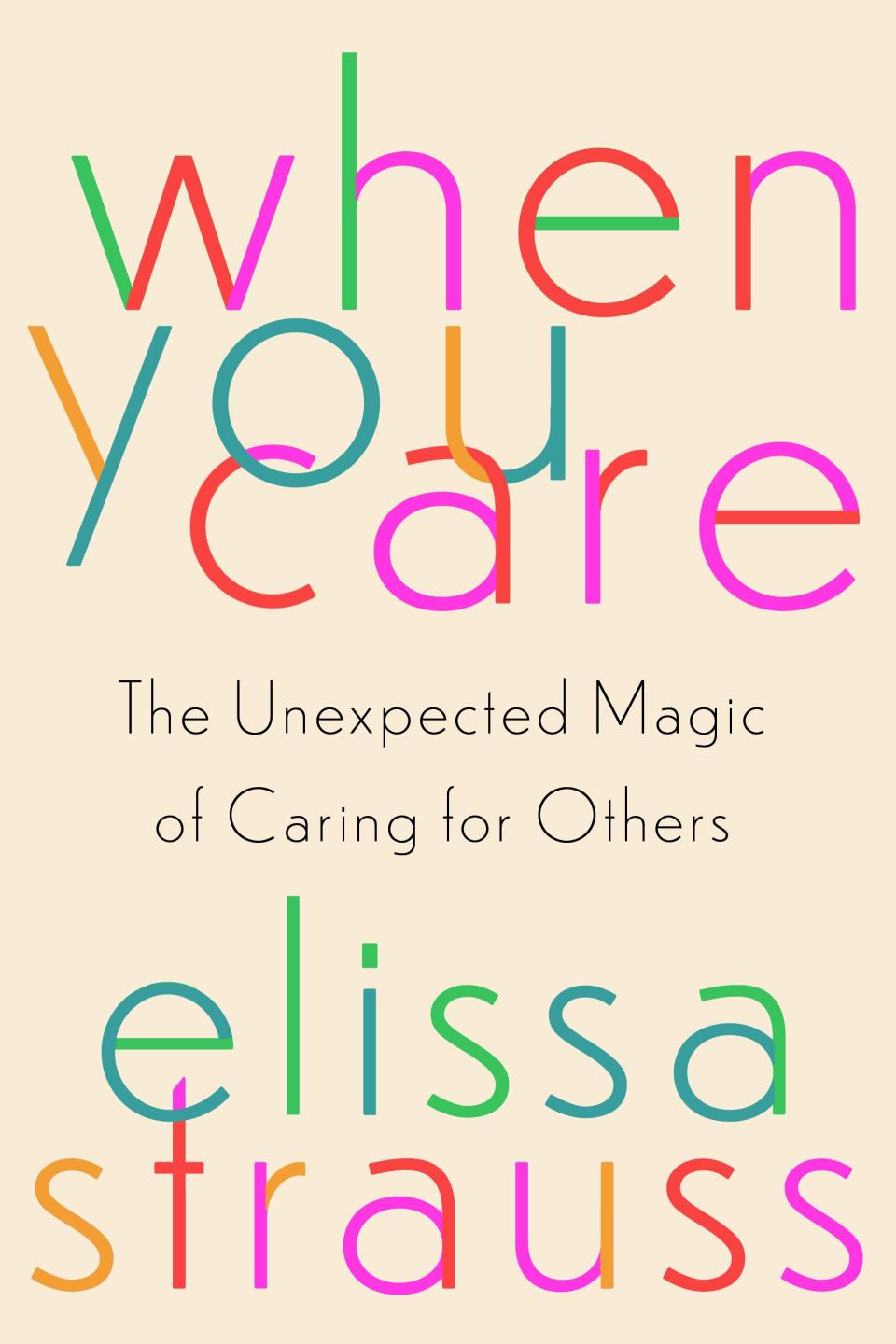What If Motherhood Was Considered as Ambitious as ‘Real’ Work?

Getty/Glamour illustration
No type of feminism—not the sex-positive variety I experienced in college nor the reproductive rights battles I participated in later on—got in my gullet like the “Lean In” feminism of the early 2010s. Author and COO Sheryl Sandberg’s push for women’s professional domination, a call to action that spawned a decade of #bossbabes and #girlbosses and other such hashtags in which career and femininity were united triumphantly, was as magnetic as the sun.
That I never aspired to the corner suite or anything that represented professional domination didn’t matter. For my grandmother and mother, getting a job, any job, qualified as success. The point was financial freedom. But according to the #girlboss formula, women needed impressive résumés but also a manic work ethic, a highly curated online persona, an effortlessly cool wardrobe, and an overinflated sense that whatever they were selling would somehow lift up all women and end the patriarchy. Family life was fine, eventually, as long as it didn’t get in the way of the above.
Inconveniently for me, the arrival of “Lean In” coincided with the arrival of motherhood. Talk about dissonance. I never had much hunger to dominate at outside-the-home work before becoming a mom, but it always seemed like maybe, one day, I would or least could. And then I had a kid and worked fewer hours, and the specter of power lunches and glamorous business trips receded into a version of my life that felt further and further away.
I had chosen care over what I perceived as ambition. I, feminist writer, was letting feminism down.
At the time I spent my days writing stories about workplace discrimination against moms and the pay gap for women’s publications just like this one. Rarely did I admit, often not even to myself, that I was single-handedly contributing to the pay gap in my own home. I had chosen care over what I perceived as ambition. I, feminist writer, was letting feminism down.
Ambition has always been a barbed concept for women, and asking a woman if she is ambitious almost always feels like a trick question. When I lived in New York City, the world capital of naked ambition, I failed to schmooze at parties or network in any meaningful way. Making money was important to live, but I never tried to make buckets more than I needed. I never got back on the laptop at 9:30 p.m. or on the weekends. Could I have put more effort into building what we today call a platform, courting followers on social media? Yeah. In short, if I ever make it big, it will have a lot more to do with luck than relentless work.
And yet, look at the terms I use to define ambitious. I’ve totally discounted that I managed to make a career out of writing, which is what I love. Not to mention the intimate relationships I maintain with my parents, in-laws, siblings, and friends. And we can’t ignore the most time-demanding of them all: motherhood. I am a parent to two children who are kind and curious. Children whom I feed, nurture, and occasionally yell at to help out around the house or be kind to one another. But when someone asks me about my ambition, the word gets stuck in my throat because the definition of ambition has, for so long, been limited to the most literal definition of work—which, according to some experts, is a mindset that could stand to change.
“Women’s professional achievement used to depend on being exactly like men,” says Anne-Marie Slaughter, the CEO of advocacy group New America and author of Unfinished Business: Women Men Work Family. “Female partners at law firms had bow ties; they looked exactly like men and acted like men as much as they could. They had to be ballbusters, tough as nails, and nobody wanted to talk about childcare.” Slaughter is one of a handful of unambiguously ambitious women trying to redefine the word, a result of her own struggle balancing work and family. Her work raises the question: Why has a perfect balance between the two become the goal in the first place?
When someone asks me about my ambition, the word gets stuck in my throat because the definition has, for so long, been limited to the most literal definition of work.
In recent years Slaughter, 66, has been self-identifying as a “care feminist,” a pivot from decades as a “career feminist.” For her this includes getting more public investment into childcare, as well as a wholesale reassessment of feminism and success, or imagining what the world would be like if women were truly in charge.
She told me that when she first started talking about all this in the mid-2010s, she met a lot of resistance. Her Davos-going, TED-Talking peers couldn’t wrap their heads around the fact that she now thought care could be just as important as career, and ambition could encompass both.
“For my generation, embracing care feminism requires a deprogramming and reprogramming. I was programmed to think that my father’s work was important and my mother’s work was not, except for her professional work as an artist. A lot of the women in my generation thought I was betraying the cause when I began talking about care.”
Seeing Slaughter’s mother’s work, and all the other caregivers’ work, as important pushes us to consider, in all its Sisyphean fullness, the task of maintaining a home and family. In the past five years, a lot of women have been talking about this, labeling it as “invisible labor,” “emotional labor,” the “second shift.” Yet many of us still buy into the career-feminist point of view in which only the hard work outside the home should be celebrated and all the birthday-party planning, well-visit booking, and new-shoe buying is a burden.
The moonshot: Convince men to expand their definition of ambition to include care, leading to a rise in men doing more at home and advocating on behalf of caregivers.
But others, thankfully, find a way to talk about the immensity of caregiving and domestic work without degrading it. Yes, they’d like men to do more because care is hard and could hold women back at work. But they also want men to take part in care because it’s an important part of a meaningful existence. The moonshot: Convince men to expand their definition of ambition to include care, leading to a rise in men doing more at home and advocating on behalf of caregivers.
Self-identified care feminist Eve Rodsky thinks while there are some men who are lazy and neglectful, that’s not the driving force behind why women do more caregiving and housework. Instead, she believes, it’s inertia and history. This is how it was in their home growing up, and and this is how it was in their father’s home, and so on.
“We’ve failed to see the home as an important organization, so to speak, in need of respect and rigor,” Rodsky, author of the best-selling book Fair Play, which offers a path forward in sharing care and chores among couples.
“When we talk about care as chores, it can sometimes seem as though it’s the worst thing in the world,” she said. “But caring for other beings is literally the existential reason we are alive, and we can help men see that and what it takes.”

If feminism has had a primary direction, it’s been up. Up in pursuit of money; up in pursuit of power; up in pursuit of independence; up, up, and up to break—the singular metaphor of the modern women’s movement—glass ceilings. Up is good. Necessary. Women are more than half of humanity. Why shouldn’t we have more control of our lives, communities, governments, and bank accounts? I love what women have gained by “up,” which includes things like bank loans and the right to vote.
But women, I’ve come to see, aren’t only held back by our failure to climb a traditional, male-defined success ladder. There are other limitations that make it so my contributions as a mom are ignored and my bank account and political representation are kept small; invisible barriers that trick women into thinking that whatever happens inside our homes, the care and domestic labor, is not valued outside it, nor worthy of external support.
“Glass doors” are the reason I failed to see the political and economic value of my efforts raising my kids, and therefore hesitated before calling motherhood ambitious.
I’ve come to think of these as glass doors, and they are the reason we don’t have paid leave, or universal or affordable childcare, and why we treat moms as hardworking, interesting people. They are also one of the reasons why professional caregivers, a workforce made up largely of women of color whose contributions to society have long been ignored, aren’t always paid fair wages or provided safe and respectful working conditions. Glass doors are the reason I failed to see the political and economic value of my efforts raising my kids, and therefore hesitated before calling motherhood ambitious.
But when I claim that label, I’m saying out loud to the world that the “inside” work I do—the parenting, the caregiving, the friendships, the family text chains, the bringing soup to the sick neighbor, the holding my kids hand during an 11 a.m. doctor’s appointment—isn’t something women quietly do while men do more important things and get attention for it. No, this care is one of life’s most fundamental ingredients and something we should all aspire to do.
This essay has been adapted and expanded from the book When You Care: The Unexpected Magic of Caring for Others, out now from Gallery books.
Originally Appeared on Glamour
More Parenting
Parents, you might be too emotionally invested in Bluey
Can a $200 Instagram class really make you a better mother?
Inside the (annoying?) rise of Cocomelon
How Fisher-Price’s ‘Purple Monkey’ Mat Became a Viral Hit
Breast pumps are now chic, by the way


